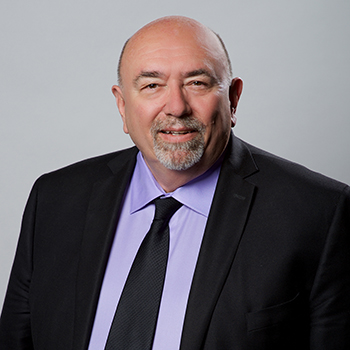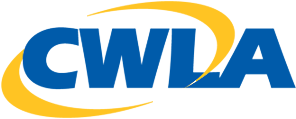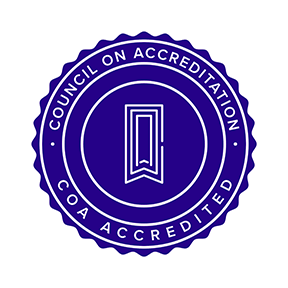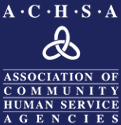

The Continuum of Care Reform (CCR) was designed so that children living out of their home would be provided the most appropriate placement in committed nurturing foster homes. Services and supports will be tailored based on each child’s needs. All of these services and supports fall into 6 Core Services: mental health, transition support upon entry, educational/physical/behavioral/extracurricular support, transition to adulthood support, permanency support, and Native American child services.
The Trinity Youth Services (TYS) team, along with our foster/resource families, will directly provide the core services and support to children, Non-minor Dependents (NMD) and their families fulfilling the requirements of CCR.
In this blog, we will outline the first Core Services, Specialty Mental Health Services, and how TYS will provide that service.
Trinity Youth Services is contracted with the Los Angeles County Department of Mental Health (LADMH) as well as San Bernardino County Department of Behavioral Health (SBDBH) to provide an array of Specialty Mental Health Services including: Individual/Family Therapy, Collateral Interventions, Medication Support, Therapeutic Behavior Services (TBS), In Home Behavior Support, and Targeted Case Management. These services are delivered by therapists meeting the requirements of each County’s contracts and the California Board of Behavioral Sciences. TYS therapists are trained in Evidence-Based Practices and Outcome Measures designed to meet the needs of the children served.
Assessment
Each child receives a comprehensive assessment upon intake to determine the appropriate course of treatment involving therapy, medication, school, recreation, reunification with family, or transitional housing. Once the assessment is completed, a treatment plan is developed with the Child and Family Team (CFT) to determine goals intended to reduce symptoms, improve behavior, and improve interactions with family and other areas of concern. The primary goal is to return each child to his/her family whenever this is possible and appropriate, to a lower level of placement, or to another permanent placement such as adoption.

Individual Treatment
Each child who meets medical necessity receives individual therapy on a weekly basis, provided by a highly-qualified therapist. Therapy is conducted in English, or efforts are made to secure staff to assist in providing services in the most comfortable language for the child, along with appropriate cultural competency and humility. Sessions can address a multitude of presenting problems, including those relating to trauma, anger, victimization, substance abuse, and mood disorders (anxiety, depression, etc.). Therapists are able to utilize several Evidence-Based Practices (EBP) that fit the specific challenges of each child, and they will monitor progress with accompanying outcome measures.
Family Therapy and Family Reunification
Family plays a very important role in successful treatment. Every effort is made by the CFT to ensure family contact/participation, including assistance with transportation or language barriers. This will be accomplished under the guidelines of the Core Practice Model through Child Family Team Meetings (CFTM). Family therapy occurs at least monthly or more often as needed.
Evidence-Based Practices
All children are assessed to determine the best course of treatment to address their mental health needs. In addition to the standard therapeutic methods for which clinicians are routinely trained, Trinity offers three other Evidence-Based Practices designed to address a variety of complex mental health issues:
- Seeking Safety: Seeking Safety is a trauma informed model focusing on developing alternative functional coping skills. It also addresses topics related to anger management, substance abuse and prevention. Seeking Safety, while used in Individual Therapy as appropriate, is also the group model for Anger Management and Drug Prevention;
- Trauma Focused Cognitive Behavior Therapy (TFCBT): TFCBT is an individual, short-term treatment that involves individual and joint sessions with the child and parent. The goal of TFCBT is to help address the bio-psychosocial needs of the child and sharing their trauma narrative with their parents or primary caregivers. Some TYS therapists are similarly trained in Individual Cognitive Behavior Therapy (I-CBT);
- Managing and Adapting Practice (MAP): This approach allows the clinicians to adapt treatment to scenarios where children have more than one problem area. This approach uses research studies, tracks progress, and implements multiple interventions best suited to the individual child.
Medication Support
Psychiatric evaluations are initially conducted by a licensed psychiatrist to determine if medications are needed and to provide further diagnostic information to the assessing therapist. If medications are prescribed, the child attends follow up psychiatric visits at least monthly, or as often as needed as determined by the treating doctor. When medication is not necessary/prescribed, children may continue psychiatric care if referred for specific issues or needs.
Stay tuned for my next blog, which will cover transition support. This topic dives into the important support offered to TYS children as they enter foster care.
 Jackie Jakob, Foster Care and Adoptions Director
Jackie Jakob, Foster Care and Adoptions Director
Having over 20 years’ experience, Jackie currently oversees Trinity Youth Services’ operations of foster care and adoptions programs throughout Southern California and in Houston, Texas. She received a bachelor’s degree in law and society from University of California Santa Barbara, a master’s degree in social work from California State University Long Beach and recently became a Licensed Clinical Social Worker. Jackie enjoys spending time with her husband and two children attending various baseball, softball and judo meets. She is on the parent board for a judo dojo and is one of the troop leaders for her daughter’s Girl Scout troop. Additionally, she really enjoys running half marathons and aims to run 4 to 5 races each year.
Tel: 909.825.5588 | Email: info@trinityys.org

Continuum of Care Reform
California implemented the Continuum of Care Reform (CCR) on January 1, 2017. CCR’s intent is to reduce the use of residential/group home placement settings and to increase the use of family care. The law also intends to decrease the length of time it takes for a child to achieve a permanent home.
Part of CCR includes the new Resource Family Approval process. This changes the way families become resource parents. It requires that “county homes,” relatives and foster family agency homes comply with all the same requirements. Its intent is to ensure all resource families are equipped to provide the best care for the children. It is also intended to streamline the process for approval.
What This Means for Current Foster/Resource Parents
CCR requires that all current certified families to be converted to approved Resource Families. The process of this conversion will depend on when you were initially certified and whether or not you have adopted a child since your certification. We have until December 31, 2019 to have all families converted. Trinity Youth Services cannot begin converting families until we have approval from Community Care Licensing to do so.
If you have an approved adoption home study.
- If you were certified after October 1, 2009, you have an adoption home study. In 2009, Los Angeles County required this of all families. You were dually certified, meaning, you’re certification is approved for fostering and adopting. The conversion process for your family will include completing a Conversion of Existing Families: Release of Information form. Your office will provide you the form when we are ready to convert. The plan is to do this around your certification date.
- If you were certified before January 1, 1999, you will also be required to complete a new Child Abuse Central Index (CACI) check.
If you do not have an approved adoption home study, but have had children placed in your home in 2017.
- You will be need to fill out a Conversion Resource Family Application.
- Trinity Youth Services will need to conduct a psychosocial assessment and a Resource Family Written Report for the family. This will entail about three home visits where we interview your family members.
- If you were certified before January 1, 1999, you will also be required to complete a new Child Abuse Central Index (CACI) check.
If you do not have an approved adoption home study and have not had any children in your care in 2017.
- All certified homes that do not have any children placed at any time during calendar year 2017 shall forfeit their certificate of approval by operation of law on January 1, 2018. Trinity Youth Services will be required to decertify your home by December 31, 2017.
- On and after January 1, 2018, if you are interested in providing care again for children you will need to submit an application for Resource Family Approval to Trinity Youth Services and complete the entire Resource Family Approval process.
You will be notified by your office about the process for your family. But if you have any questions, please contact your foster care director or myself.
 Jackie Jakob, Foster Care and Adoptions Director
Jackie Jakob, Foster Care and Adoptions Director
Having over 20 years’ experience, Jackie currently oversees Trinity Youth Services’ operations of foster care and adoptions programs throughout Southern California and in Houston, Texas. She received a bachelor’s degree in law and society from University of California Santa Barbara, a master’s degree in social work from California State University Long Beach and recently became a Licensed Clinical Social Worker. Jackie enjoys spending time with her husband and two children attending various baseball, softball and judo meets. She is on the parent board for a judo dojo and is one of the troop leaders for her daughter’s Girl Scout troop. Additionally, she really enjoys running half marathons and aims to run 4 to 5 races each year.
Tel: 909.825.5588 | Email: info@trinityys.org


On January 1, the long-awaited Continuum of Care Reform began throughout California. The Continuum of Care Reform (CCR) effort, which is implemented by Assembly Bill 403, is designed to make sure that youth in foster care have their day-to-day physical, mental and emotional needs met; that they have the greatest chance to grow up in permanent homes; and that they have the opportunity to grow into self-sufficient, successful adults. In other words, the reform effort is attempting to provide for foster children exactly what it is that parents provide their own children.
Resource Family vs. Foster Family:
Families who now provide foster care will be known as resource families and will be provided targeted training and support so that they are better prepared to care for the children living with them. The reform effort also advances California’s long-standing goal to move away from the use of long-term group home care by increasing placements with resource families. Existing group home care will now be transformed into Short-Term Residential Therapeutic Programs (STRTP), where youth who are not ready to live with families can receive short-term, intensive treatment.
The term “continuum of care” refers to the spectrum of care settings for youth in foster care, from the least restrictive and least service-intensive to the most restrictive and most service-intensive. For example, a placement with an individual foster family or an extended family member would be least restrictive, and a placement in a group home with mental health treatment and limits on when the youth could leave the facility would be the most restrictive.
To better meet the needs of children in foster care and to promote positive outcomes, the CCR implements the following:
- Updates the assessment process so that the first placement is the right one.
- Establishes core services and supports for foster youth, their families, and resource families;
- Strengthens training and qualifications for resource families providing care to foster youth and congregate care facility staff;
- To the extent that the children are provided needed services and support, transitions children from congregate care into home-based family care with resource families;
- Transforms group homes into a new category of congregate care facility defined as Short-Term Residential Treatment Programs;
- Revises the foster care rate structure;
- Requires STRTPs and treatment foster family agencies to be certified by counties through their mental health plans;
- Requires foster family agencies and STRTPs to be nationally accredited.
- Evaluates foster family agency performance measures and outcomes.
What does this mean for the Trinity Foster Family and Adoption Agency and for the foster parents currently certified by the agency?
It means, first and foremost, that the agency and resource parents will be better able to meet the needs of the foster children. Better assessments will mean better matches for children when placed. Resource parents will be better trained to help meet the needs of the children in their care. More services and supports will be available to help children when they experience difficulty. Eventually, the state will implement a new rate structure that will assist agencies and resource parents to provide the proper services and supports to children.
There will be a new Resource Family Approval process:
The good news is that current foster family who were approved before January 1 are certified to provide care. There are only a few current foster parents who are not dually certified for both foster care and adoption, and there is a plan in place to have them certified by state deadlines. The new Resource Family Approval process has new requirements for training that Trinity will ensure its families receive.
Trinity currently meets all of requirements under the CCR:
Trinity is nationally accredited by the Council on Accreditation and has been since 2014. Trinity is also mentally health certified in both Los Angeles and San Bernardino Counties. Trinity has also submitted its new Program Statement to change its group homes to STRTPs and has also updated and submitted its Program Statement for foster care to the State. Trinity has for a number of years used evidence based practices and tracks performance measure and outcomes.
Should you have questions about the CCR or resource parent requirements, please contact your local office director or social worker.
 John Neiuber, Chief Executive Officer
John Neiuber, Chief Executive Officer
John is the chief executive officer of Trinity Youth Services. With programs in two states, he leads an agency that serves over 500 children and families daily through residential treatment services, mental health programs, foster care agency and adoption services. He received both his bachelor’s and master’s degrees from California State University, San Bernardino. In 1993, he became the CEO of Advanced Education Services, a not-for-profit corporation that operated nonpublic and charter schools. He became the chief operating officer of Trinity Youth Services in 2002 and CEO in 2005.
Tel: (800) 964-9811 | Email: info@trinityys.org





